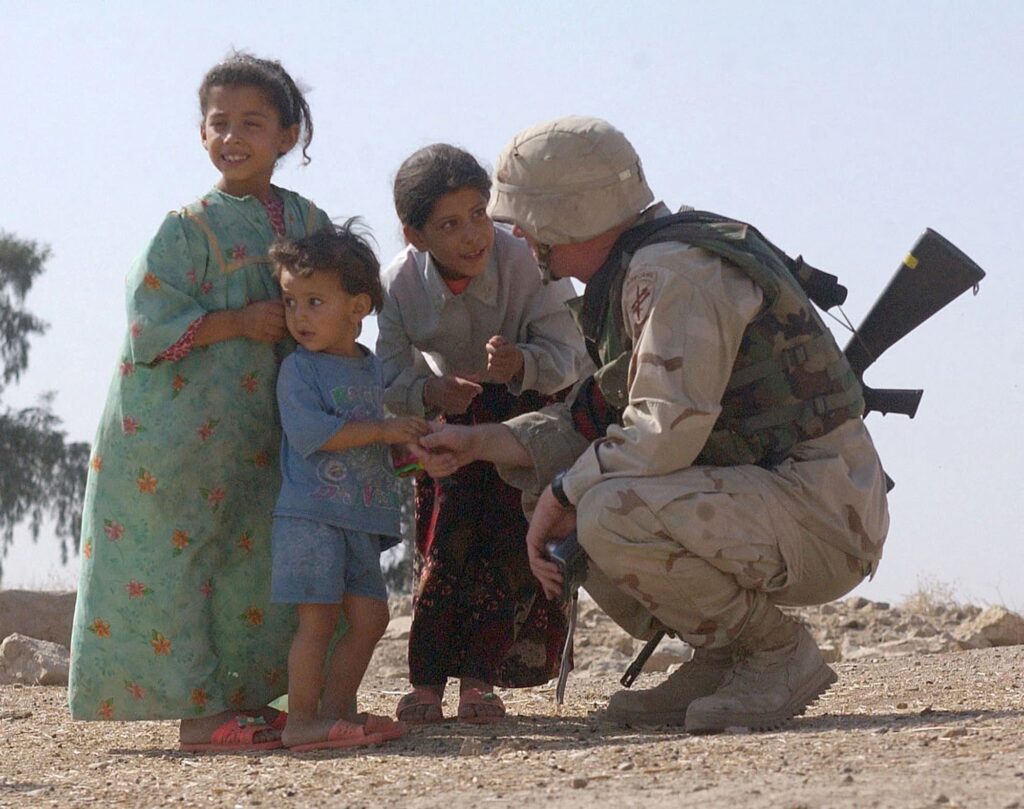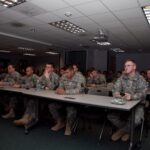Psychological operations are a military strategy that involves changing an opponent’s beliefs and opinions through messages and actions. These messages can include propaganda broadcasts, leaflet drops, and other methods of psychological warfare. These activities can be very effective and significantly impact enemy morale.
During World War I, psychological warfare was used to discourage German soldiers from abandoning their units or surrendering. It also helped the Allied forces gain a psychological advantage over the enemy. During World War II, psychological warfare was expanded, with PSYWAR groups at the theater and field army levels, as well as in Central Intelligence Agency units.
These groups were responsible for white PSYOP and some black propaganda. They were also involved in preparing the public for the upcoming invasion of Europe. This was done through fake field armies and leaks of fictitious Allied invasion plans.
Today, the 4th Psychological Operations Group (Airborne) is the only active duty unit of its type in the U.S. Army. It is based at Fort Bragg, North Carolina, home of the United States Army Special Operations Command.
How Do You Become a PSYOP in the Army?
The Army’s psychological operations are designed to convey selected information and indicators to foreign audiences in order to influence their emotions, motives, objective reasoning, decision-making abilities, and, ultimately, the behavior of governments, organizations, groups, and individuals. PSYOPS officers are also responsible for integrating and synchronizing their activities with strategic, operational, and tactical peacetime and combat operations. They must be adaptive thinkers with language and cultural expertise and possess military-to-civilian communications knowledge and skills.
To become a PSYOPS in the Army, you must be a qualified soldier with at least two years of service. Once you’ve met those qualifications, you can apply to the PSYOP regiment through one of its recruiters. Once you’re accepted, you’ll go through a rigorous assessment and selection process. This is a physically and mentally exhausting process, so you must be prepared.
PSYOP soldiers deploy all over the world, and they work with many different countries. They need to be able to communicate effectively in their home languages and in other languages as needed. If they don’t, their missions could fail.

What are the Three types of PSYOPS?
There are three types of PSYOP: strategic, operational, and tactical. Strategic PSYOP is aimed at a larger audience to support national political and military objectives. Operational PSYOP supports theater campaigns and major operations. Tactical PSYOP targets a specific enemy combat group with the goal of influencing their current or short-term military actions.
A key aspect of PSYOP is its ability to influence beliefs, emotions, and attitudes, which are used to achieve national objectives. This can be achieved through the dissemination of truthful information to foreign enemy, neutral, or friendly audiences. This information can be spread covertly through face-to-face communication, audio-visual means (television and radio), or written media (leaflets, newspapers, and books).
PSYOP can be used to erode an adversary’s fighting effectiveness by attacking their morale and reducing the ability of the enemy combat force to make decisions and communicate effectively. PSYOP can also encourage discontent among the enemy leadership and create mass confusion. The use of PSYOP tactics has led to many enemies surrendering, such as the Iraqi soldiers who resigned through leaflets and loudspeaker broadcasts during the Gulf War.
Is PsyOps hard?
PSYOPs are complex operations meant to influence the emotions, motives, and behavior of governments, groups, organizations, and enemies. They are a form of covert military intelligence and are used to influence people by exploiting their vulnerabilities.
These vulnerabilities can include things like poverty, hunger, lack of education, or religious beliefs. In order to be effective, PSYOPs must be tailored to their audience. This is why the US Army has dedicated psychological operations units.
During Operation Desert Storm, the Coalition forces dropped leaflets telling Iraqis to surrender or be destroyed. This simple psyop worked, and resulted in thousands of lives being saved.
Although the Pentagon has made a shift away from information warfare, it’s hard to deny that it can be effective. From the QAnon phenomenon to Russian memes to Chinese spy balloons, it’s clear that our adversaries are using a wide range of tactics in their war against us. The army’s new recruiting video is a good example. The video’s Cold War references and conspiracy theories give it a creepy, surreal vibe. But it also highlights the importance of the field to the US.

